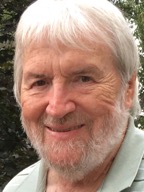Meet the curator
Thanks for coming by. My name is Brian Harrison Bragg. My family card in this website is here.
I was born in Marion, Indiana, before anyone imagined such a thing as a Baby Boom. It was as good a time as any to be born, and as good a place. Marion was a manufacturing and agricultural city of 25,000, the county seat of Grant County, about 60 miles northeast of the state capital. Marion was not cosmopolitan by any stretch of the definition, but the city was as diverse and interesting as any municipality one could find in the conservative midwestern flatlands in the late 1930s.
The Great Depression was nearly over. My parents had waited eight years to bring me into this world while they both worked at blue-collar jobs to help support their siblings and extended family through hard times. The coming war in Europe was still more than a year off when I arrived. My demographic cohort bellied up to the trough before the great howling mob with loud voices and sharp elbows began  arriving in 1946 to stir such change and outright disruption — some bad, some good — in American life. (It’s you Boomers I’m describing, in case you didn’t recognize yourselves.)
arriving in 1946 to stir such change and outright disruption — some bad, some good — in American life. (It’s you Boomers I’m describing, in case you didn’t recognize yourselves.)
Other Places
brianbragg.com — a personal website where my opinions hang out, mostly on the port side.gravitationist — a bit of country living, not necessarily gracious but usually instructive to a city-bred boy.
I didn’t think about such things until much later, of course, when as an adult I contemplated the social influences on my development, my character and my outlook. You tend to dwell on such things when you research your family’s history and involve yourself in genealogy.
Until she arrived in 1945 my sister, Brenda, granted me more than seven years to be the only child, indulged by working parents and my paternal grandmother, who came as near to being Christian as anyone I have known in the decades since.
The trolley line (we called them streetcars) ran past my front door. For five cents I rode it it five miles to the other end of town, to the big swimming pool at the city park, where another 10 cents got me a brass locker tag and a day of wet fun. I began unsupervised trips downtown on the streetcar when I was eight or nine. A kid could do that in those days, and nobody worried.
Four railroads ran through Marion — the Pennsylvania, the Chesapeake & Ohio, the Nickel Plate and the New York Central. We lived one long block from a NYC switching spur, and I spent hours clambering around the boxcars, coal cars and gondolas. I hitched rides on the locomotive when the train crew was in a good mood and the bosses weren’t looking. The brakemen rode my bike alongside while I perched like a grinning Chessie cat up in the cab of that old 2-4-0 Baldwin amid the cinders and the steam and the grease.
I had no idea some kids were growing up in places with no switchyards, no freight cars, no locomotives. I wouldn’t have cared then; I’m sad for them now, for what they missed.
I didn’t think about kids growing up without extended family connections — like carloads of aunts and uncles to serve as surrogate parents for an afternoon or a weekend or just anytime I chose to walk in. In the years I was riding the streetcars and hanging around the railroad spurs, I had 23 aunts and uncles, nearly all of them living within 15 miles of my house. I also had 23 first cousins by blood and 11 others by adoption or second marriage, many of them playmates in my own age group. We didn’t know how lucky we were to have such close family ties. It was just the way it was. Not until much later did we realize what a special thing we had.
My core interest in family history took root in the stories told by my relatives, tales of the olden days and the commentary on the personalities and characters of the storytellers themselves. Some of the stories were inspiring, some shocking. They were fascinating documentaries of social, political and economic conditions, and I wish now — as most serious genealogists wish — that I had made some record of those stories and observations of my elders.
The times were changing fast in Middle America in the mid-20th Century, just as conditions are changing fast today in so many parts of the world. By studying and reflecting upon our family histories and our social roots — I really believe this — by trying to understand how we were shaped by them and by taking lessons from that understanding, we can gain the knowledge and wisdom to make this a better place.